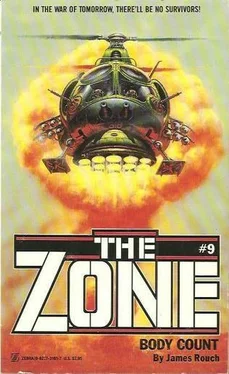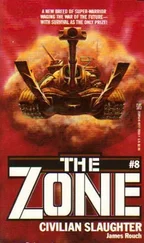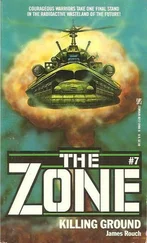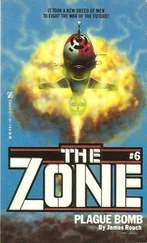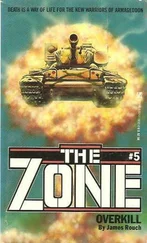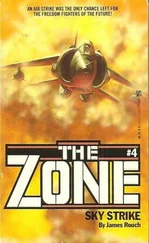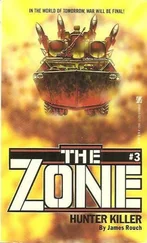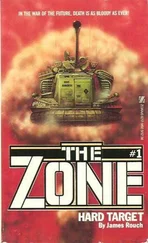James Rouch
BODY COUNT


Cover illustration:
The ZSU-23-4 is a fully integrated, self-propelled antiaircraft system with four liquid-cooled 23-mm automatic cannons mounted on the front of a large, flat, armored turret. The chassis has many components borrowed from other Soviet armored vehicles, and the suspension system resembles that of the PT-76 and ASU 85 (six road wheels and no track support rollers). The driver sits in the left front of the hull, and the rest of the crew (commander, gunner, and radar operator) are located in the turret. The GUN DISH fire control radar mounted on the rear of the turret can be folded down during travel.
In the very centre of the city, if you listened carefully, you could sometimes hear the noise of the distant battles. Major Revell didn’t make the attempt. These were the last few hours of his seven-day furlough. He would’ be hearing the guns, from much closer, soon enough.
Outside the window the constant stream of pedestrians was undiminished, but most of the tables in the little restaurant were empty. He had only to make a slight gesture to attract the attention of the fat waitress. A moment later another bottle of liebfraumilch stood beside his plate.
The food was hardly touched. Revell pushed a cube of smoked pork with his fork, but could summon neither the appetite nor the enthusiasm to eat. He refilled his glass.
A distant rumble of heavy artillery fire intruded on his enjoyment of the first taste. Now he wished he’d chosen a place where the roar of traffic would drown such sounds. The planners could never have known that freeing much of the city centre from the intrusion of vehicles would have brought that disadvantage.
An elderly woman, with two tired grandchildren in tow, came in and returned the waitress’s greeting. She made to sit at the next table, saw the officer’s uniform, and hesitated almost imperceptibly. Instead she chose to sit at another, further away.
Revell’s smile at the little girl was rewarded with a shy but polite Gutan Abend, before she was pulled abruptly to her distant seat. He let the smile fade slowly. It was a reaction he was all too used to.
When he entered the small establishment, there had been a hurried whispered conversation between the waitress and the unseen proprietor in the kitchen. Revell had been shown to a corner table, far from the door.
Not that they could have refused to serve him. Even a few months earlier they might well have. The new laws had changed all that, if not the actual attitudes of the people.
Munich was close to the borders of the Zone, but divorced itself from the reality of that great contaminated no-man’s-land as much as it could. As if it could pretend that it did not exist.
In the eyes of the civilian population — even those of the rear echelon staff who inhabited the city in seemingly vast numbers — combat soldiers carried the taint of the Zone with them.
The stories — mostly wild, but many all too true, of nuclear, chemical, and bacterial weapons — made the fighting troops outcasts in the society they were defending.
Idly he wondered if the wine was watered, but he knew it wasn’t. At any other time the amount he had drunk would have put him under the table. Now it was having no apparent effect. His mind was too full of what awaited him in the days — and if he was lucky enough to live that long — in the weeks that lay ahead.
“May I join you, Herr Major?”
Revell hadn’t notice the man enter. When he looked at him closely, he was hardly surprised. From his bland expression to his nondescript suit, the man was a walking nonentity. Out of habit, Revell tried to classify him. Perhaps he was the owner of a small and uninteresting business, or a bureaucrat in a minor state concern, the post office perhaps.
“Is there a special reason why you should wish to join me?”
“Let me introduce myself, however inadequately. My name is Otto. You do not know me.”
Unbidden, he sat down across from the officer. Revell observed that even his posture was unremarkable. Slightly round-shouldered, a little stooped, but not sufficiently to provoke comment. The man would have melted unnoticed into any crowd.
A dozen times in the last seven days, Revell had been battened on to by salesmen peddling everything from insurance to forged passports and replica medal ribbons. And there were others who approached men on leave. Usually they were relatives of refugees trapped in the Zone. They desperately clutched at any straw for information, interrogating with a pitiful intensity any soldier who spared them the time.
Somehow Revell knew this man was not any of those. “Just Otto?”
“As I said, Herr Major Revell, you do not know me, and there is no reason why you should. Not now, not ever.”
“You know me though.”
“Indeed I do. I would have contacted you before, but the city is so full at this time. We lost track of you for several days.”
“I can’t say I’m sorry. I don’t like being spied on.”
“I am sure, Major Revell. Actually we traced you through a lady friend of yours, of whom we learnt only today, Fraulein Sophia Pruller. I’m sorry, I see you take offence. Please accept my apologies. That was an unwarranted intrusion into your private affairs.”
“I think you had better come straight to the point.” The German had Revell puzzled. Nothing in his voice or manner suggested any exceptional qualities, but he sensed that in him there were depths he did not care to explore. “And so I shall Major.”
Otto waved away the waitress, then had second thoughts, and ordered a mineral water. He waited until it had been served before going on.
“I represent certain interests, Major Revell. We have known of your Special Combat Company for some time. An interest has been taken in you and your recent — shall we say — problems.”
“Would you like to spell that out.” Revell was not about to be tricked into revealing information, but he was intrigued. “Certainly. If I mention a mass grave, and a KGB disciplinary battalion,* and your raid upon them? Need I go on to mention the charges you faced for disobeying orders not to retaliate during a truce?”
“So you seem to know as much as you say. Why your interest in me and my unit?”
Again there was an interruption, with the entrance of a large group of Swedish tourists. Two of the women were unsteady, and there was much chatter and giggling over seating arrangements before they settled to read the menu.
It was with surprise that Revell noticed his bottle was already half-empty. Perhaps the drink was getting to him.
“I have a proposition, Major. The men I represent are very rich, very powerful. They need protection. You would be paid very well.”
“They operate in the Zone?”
“Some of their ventures are in that area, yes.”
“And you want me to deliver my unit, complete, as a freelance army. You want us all to desert, in one go.”
“You are a blunt man, Major Revell, but yes, that is what I am proposing. The men of whom I speak have urgent need of your services. They offer an initial cash payment of two million marks, for you to split as you see fit. That is purely a token of their good faith, there would be much more to follow.”
“And when would they want us to go to work for them?”
Читать дальше
